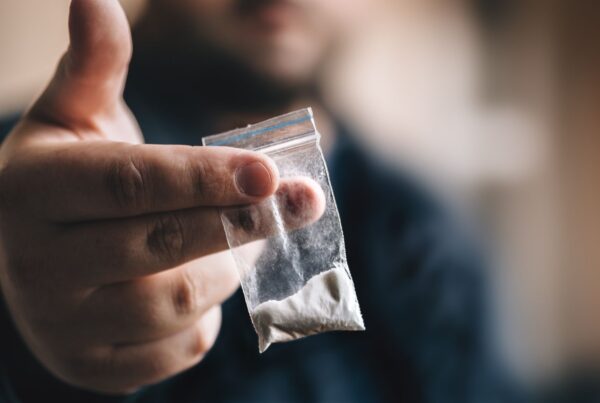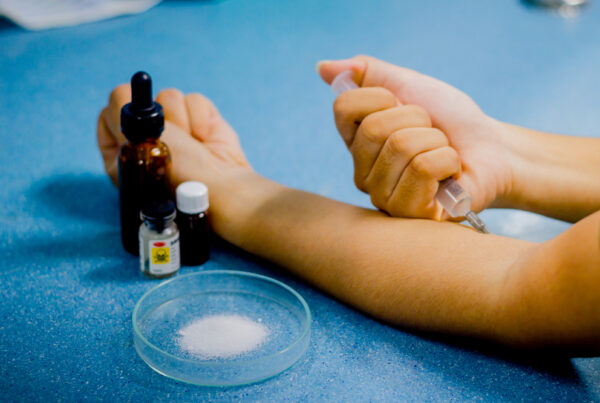Addiction, also as substance use disorder (SUD), is listed in the Diagnostic and Statistical Manual of Mental Disorders, Fifth Edition (DSM-5) as a chronic, relapsing brain disorder. It is characterized by compulsively engaging in rewarding stimuli (e.g., abusing drugs and/ or alcohol) without regard for consequence. An individual that struggles with addiction will prioritize satisfying his or her drug cravings above all else. Cocaine, colloquially referred to as coke, is a highly addictive, fast-acting nervous system stimulant. It is classified by the United States Drug Enforcement Administration (DEA) as a Schedule II Substance, which are “defined as drugs with a high potential for abuse, with use potentially leading to severe psychological or physical dependence.” Cocaine works by sending increased levels of dopamine to certain areas of the brain, disrupting the normal communication between neurotransmitters, causing feelings of energy, alertness, and euphoria. It is an unregulated, illicit drug that is used recreationally.
Cocaine Addiction Treatment
The path of recovery from cocaine addiction is not entirely linear, nor will it be the same for every person. There is no universal treatment method that proves successful for everyone struggling with substance abuse and/ or addiction, as everyone has nuanced needs when it comes to the recovery process. In effort to provide a broad understanding of the steps required to overcome an addiction to cocaine, look at the following three stages, in sequential order, that make up a typical substance abuse and/ or addiction treatment process:
- Detox: detox is the process that rids one’s body of all foreign substances. The average half-life, meaning the length of time the substance will remain in one’s system until the concentration in one’s blood has been reduced by half, of coke is approximately one hour. When an individual has habitually abused cocaine, his or her body becomes accustomed to functioning with it present, and when the substance is absent from one’s system it will react accordingly. Withdrawal symptoms develop during the detox stage due to the lack of cocaine in one’s system.
- Formal Treatment Program: substance abuse and/ or addiction treatment programs are conducted in either an inpatient setting or an outpatient setting. Customized treatment plans will be developed to ensure each person’s unique needs are accommodated. Treatment plans may integrate a wide variety of distinct therapeutic modalities, some of which could include any combination of: cognitive behavioral therapy (CBT), dialectical behavior therapy (DBT), psychodynamic psychotherapy, interpersonal therapy (IPT), mindfulness-based therapy, expressive arts therapies, and more.
- Aftercare: during the formal treatment program an individual will develop an aftercare plan with his or her clinical team. This serves as a personalized resource that provides individuals with both detailed and broad guidance, often including suggestions for how to navigate challenges post treatment, strategies for relapse prevention, and more.
The recovery process is entirely personal, and it will be directly informed by one’s personality, mental health, and emotional needs. A combination of treatment strategies and therapies within each stage of the recovery process generally yield more effective results. Ample support and a tailored treatment plan will provide an individual with the highest potential for a successful, long-term recovery.
For Information and Support
If you are concerned for yourself or a loved one regarding substance abuse and/ or addiction, we recommend reaching out for help as soon as possible. If left untreated, substance abuse can result in long lasting and potentially life-threatening consequences. Keep in mind: you are not alone! There is an entire network of professionals that are available to help and support you and your loved one throughout the recovery process. The earlier you seek support, the sooner your loved one can return to a happy, healthy, and fulfilling life.
Please do not hesitate to reach out with any questions regarding our specific program at Haven House Addiction Treatment and/ or general substance abuse and/ or addiction treatment related information. Our highly trained staff is readily available to discuss how we might best be able to help you and your loved one. We can be reached by phone at 424-258-6792. You are also welcomed to contact anytime us via email at admissions@hhtxc.com.



